Understanding the 2025 Google Algorithm Evolution
Google's search algorithm continues to evolve at an accelerated pace, with 2025 marking a significant year of innovation and refinement. This article explores the latest core updates, AI-driven features, ranking priorities, and essential SEO strategies to help website owners and marketers adapt and thrive in this dynamic environment.
A Historical Overview of Google's Algorithm Evolution and Its Impact on SEO
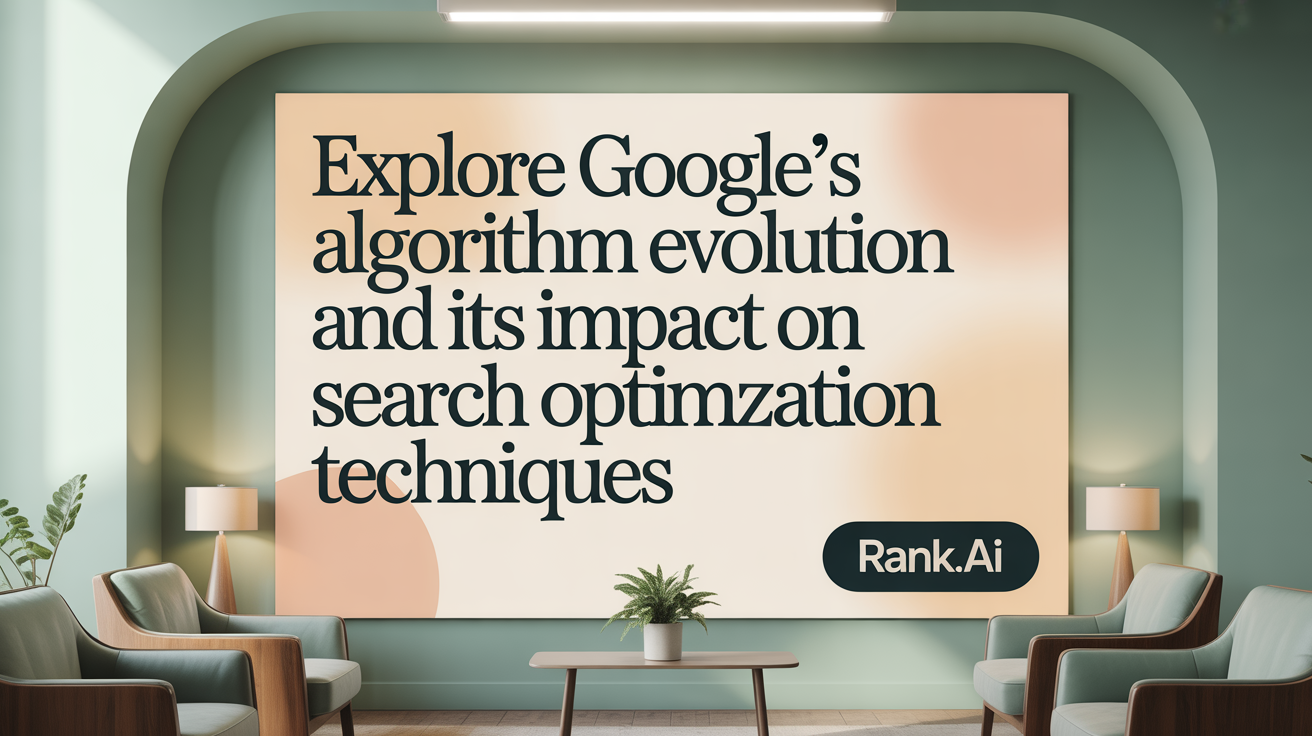
How has Google's search algorithm evolved over time and what historical updates have significantly impacted SEO?
Google's search algorithm has undergone continuous transformation since its inception, with numerous updates aimed at improving result relevance, quality, and overall user experience. Initially, early updates focused on basic keyword matching and website indexing. Over time, Google introduced major algorithm updates that shaped SEO practices dramatically.
One of the first notable updates was Panda in 2011, designed to target low-quality, thin content and content farms. This pushed webmasters to focus on creating valuable, well-written content. Next came Penguin in 2012, targeting manipulative link-building tactics, encouraging natural backlink profiles.
Hummingbird, launched in 2013, marked a shift towards understanding search intent through natural language processing. This allowed Google to better interpret user queries, especially conversational and long-tail searches.
In 2019, BERT (Bidirectional Encoder Representations from Transformers) was introduced, significantly enhancing Google's ability to understand the context and nuances of language, making search results more relevant.
The recent years saw a series of core updates in 2023 and 2024, including the Helpful Content and Product Reviews updates, which prioritize user-centric, high-quality content and penalize low-value or spammy pages. These updates emphasize the importance of expertise, authority, and trustworthiness, aligning with Google's E-E-A-T principles.
Moreover, Google has incorporated AI-driven systems like RankBrain and MUM (Multitask Unified Model) to interpret complex queries and deliver more accurate and comprehensive results. AI-driven features such as 'AI Overviews' and 'AI Mode' introduced in 2025 further exemplify this shift, using machine learning to understand user intent better and provide quick, authoritative summaries.
Throughout its evolution, Google's focus has shifted towards providing safer, more relevant, and helpful search experiences. These changes continue to influence SEO strategies, requiring content creators to prioritize quality, expertise, and technical excellence to succeed in the ever-changing digital landscape.
Decoding Google's Major Core Algorithm Updates in 2025
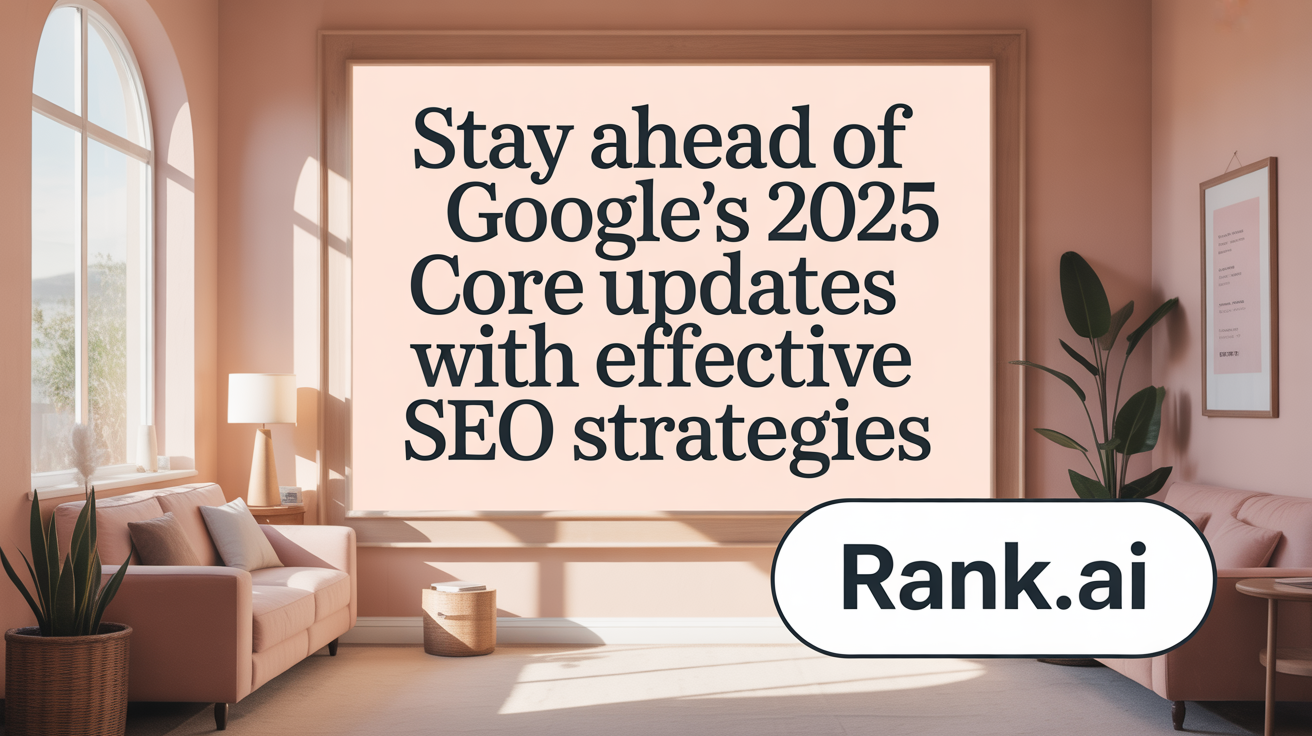
What are the key features and implications of Google's May 2025 algorithm update?
In 2025, Google introduced a series of significant algorithm updates designed to enhance search result quality and relevance. The May 2025 update, rolled out over several weeks, emphasized the importance of authoritative, high-quality content. It highlighted the ability of AI evaluation systems to scrutinize content for expertise, experience, authoritativeness, and trustworthiness (E-E-A-T).
This update reinforced the need for websites to focus on relevant, well-researched content that demonstrates clear expertise and credibility. Additionally, the update prioritized mobile-first indexing, aligning with the broader industry shift toward mobile-specific optimization. Core Web Vitals, which measure site speed, interactivity, and visual stability, gained further importance, affecting how sites rank on search.
Moreover, Google enhanced its AI-driven content assessment capabilities, making it crucial for content creators to produce original material, avoid spammy tactics, and adhere to ethical SEO practices. Stricter penalties were introduced for manipulative tactics like low-quality, AI-generated content lacking human oversight, or spammy link practices.
To adapt, site owners should optimize for mobile by ensuring fast load times, smooth user experiences, and structured data implementation, such as schema markup. Local SEO remained vital; improving Google Business Profiles and encouraging real customer reviews help increase local visibility.
Overall, the May 2025 update underscored Google's commitment to delivering helpful, trustworthy search results. Staying informed through these ongoing changes and maintaining best-practice SEO strategies is essential for long-term success.
Sector-specific effects and recovery expectations varied. News outlets focusing on quality reporting saw gains, while e-commerce sites improved by refining product descriptions and reviews. Conversely, low-effort, templated websites faced penalties, emphasizing the importance of unique, valuable content.
Recovery from the impacts of these updates may not be immediate. It is recommended that website owners focus on continuous content improvements, technical SEO enhancements, and user experience investments to withstand future fluctuations.
Impact of 2025 Google core updates on SEO
Google's algorithms in 2025 have transformed SEO practices significantly. Updates from March through June introduced volatility, demanding a focus on content quality, technical SEO, and trustworthy backlinks. The overarching trend favors human-centered, original content that demonstrates expertise and aligns with user intent.
Monitoring performance via tools like Google Search Console and maintaining a focus on Core Web Vitals and structured data are vital. The integration of AI features, such as AI Overviews and AI Mode, enhances search capabilities, but the authenticity and quality of onsite content remain pivotal.
In conclusion, the 2025 updates reinforce that providing genuinely helpful, authoritative content with stellar user experience is essential for maintaining and elevating search rankings amid evolving AI-powered search algorithms.
The Rise of AI in Google's Search Ecosystem: Features and Implications
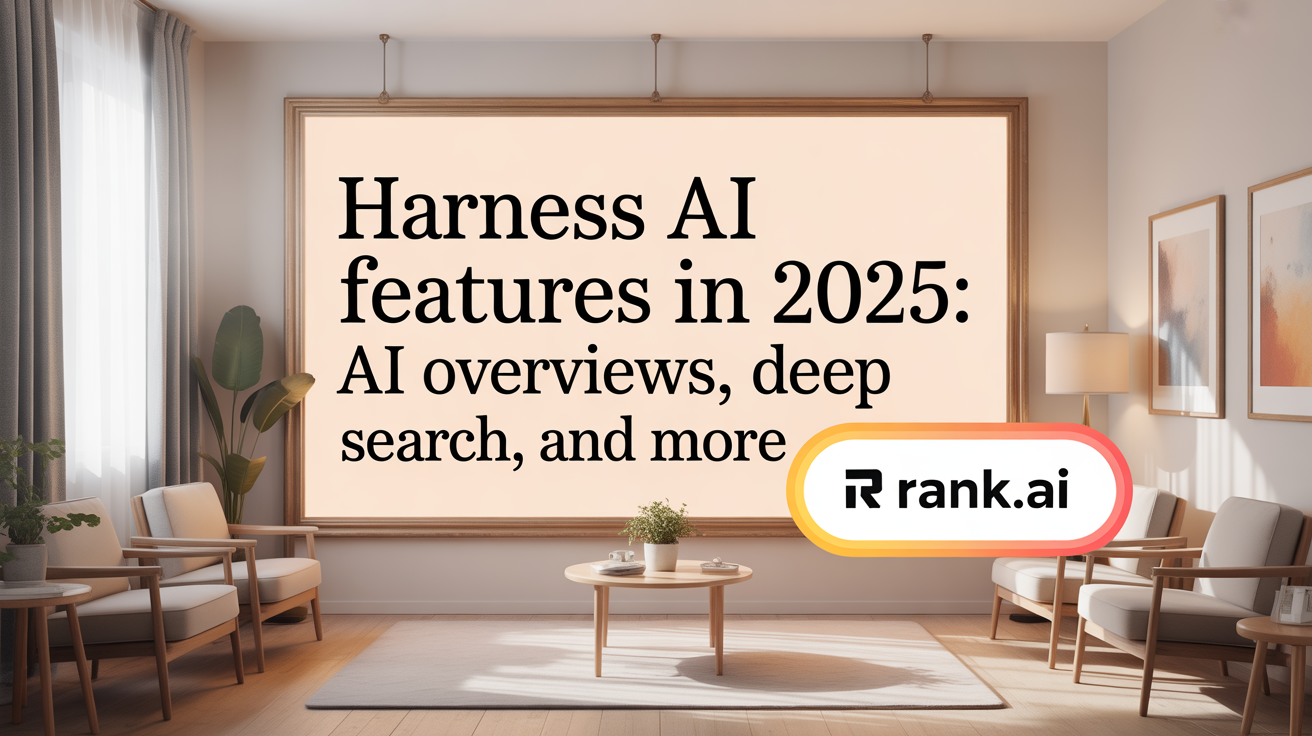
Introduction of AI Mode powered by Gemini 2.5
In 2025, Google introduced a new 'AI Mode' in its search engine, driven by the advanced Gemini 2.5 AI platform. Currently in beta and available in the US, this feature enhances the search experience by improving the handling of multi-turn questions and complex reasoning tasks. It represents a significant step forward in making search more conversational, allowing users to engage in more natural, layered interactions.
AI Overviews surge and their role
During the March 2025 update, Google rolled out 'AI Overviews' for various query categories. These overviews now appear prominently at the top of search results, providing succinct, AI-generated summaries. Notably, from January to March 2025, AI Overviews experienced a 102% increase in appearance, reflecting their growing importance. While they offer quick answers, their prominence can sometimes reduce click-through rates to traditional website links, pushing content creators to focus on producing authoritative, user-centric content.
Deep Search and real-time interaction capabilities
Google's ongoing AI advancements include the launch of 'Deep Search' capabilities within AI Mode. This feature allows users to ask complex, multi-dimensional questions and receive fully-cited, comprehensive reports by conducting hundreds of interconnected searches. Coupled with real-time visual interactions via Search Live and Project Astra, users can now engage with search results dynamically, in real time, through camera input and live data streams, making search more interactive and immediate.
AI shopping and personalized recommendations
Another major innovation is the integration of AI-driven shopping features. Users can browse products, try virtual fittings, and complete purchases directly within Google Search using Google Pay. These suggestions are personalized based on previous searches and integrated with connected Google services like Gmail, giving users tailored experiences while maintaining control over their privacy. This blending of AI and e-commerce is transforming how consumers discover and buy products.
Impact on content creation and search experience
The increasing incorporation of AI features significantly impacts SEO and content strategies. Google emphasizes the importance of high-quality, expert, and trustworthy content, especially as AI-generated summaries and visualizations become more prevalent. Content creators need to focus on maintaining originality, expertise, and relevance. They should also utilize structured data markup, optimize for Core Web Vitals, and enhance multimedia content, ensuring their pages stand out in an AI-rich search landscape. Overall, Google's AI advancements aim to make search more intuitive, personalized, and rooted in trust, shaping the future of SEO in 2025.
E-E-A-T and Content Quality: The Cornerstones of 2025 SEO Success
 In 2025, Google continues to emphasize the importance of creating high-quality, trustworthy content that provides real value to users. A central framework guiding this focus is E-E-A-T, which stands for Experience, Expertise, Authoritativeness, and Trustworthiness. These factors are now more critical than ever in determining search rankings, especially as Google applies stricter content filters to combat low-quality and spammy material.
In 2025, Google continues to emphasize the importance of creating high-quality, trustworthy content that provides real value to users. A central framework guiding this focus is E-E-A-T, which stands for Experience, Expertise, Authoritativeness, and Trustworthiness. These factors are now more critical than ever in determining search rankings, especially as Google applies stricter content filters to combat low-quality and spammy material.
Google's algorithms are designed to favor content that demonstrates firsthand knowledge, authoritative insights, and credible sourcing. Content that thoroughly addresses user intent, incorporates expert opinions, and adheres to best practices will rank higher. This shift encourages content creators to establish topical authority through content clusters, cite reputable sources, and highlight real-world experience.
To meet these standards, publishers must focus on helpfulness and originality. Humanizing AI-generated content has become essential; this involves editing AI outputs, adding unique insights, and ensuring the content reads naturally. Google's policies do not target AI tools outright but scrutinize the final content quality. Poorly written AI content that lacks depth or relevance can still trigger penalties, so human oversight remains crucial.
Avoiding penalties involves maintaining transparency, avoiding spam tactics, and ensuring that all content—whether created by humans or with AI assistance—is valuable, accurate, and aligned with user needs. Sites that focus on delivering reliable information from trustworthy sources gain a competitive edge.
Ultimately, building credibility through authoritative content and maintaining high standards for quality and user experience will be the foundation for SEO success in 2025. Incorporating structured data, optimizing for core web vitals, and engaging users with multimedia elements further reinforce a site’s reliability and relevance. As Google’s focus sharpens on human-centered and expert content, publishers must prioritize authenticity and trust to thrive in the evolving search landscape.
Technical SEO and User Experience in 2025: Core Web Vitals and Beyond

What are the best SEO strategies and practices to optimize websites for Google’s evolving algorithm in 2025?
In 2025, staying ahead in search engine rankings requires a focus on both technical SEO and creating valuable content that meets user expectations. Google continues to emphasize the importance of site speed, mobile-friendliness, and overall user experience.
One of the major updates this year is the removal of the standalone 'Page Experience' report from Search Console. However, metrics associated with Core Web Vitals—Largest Contentful Paint (LCP), Interaction to Next Paint (INP), and Cumulative Layout Shift (CLS)—remain vital indicators of a healthy user experience. LCP should ideally be below 2.5 seconds, INP less than 200 milliseconds, and CLS below 0.1. Regular monitoring through tools like Google PageSpeed Insights and WebPageTest is recommended to maintain optimal scores.
Mobile-first indexing is now more critical than ever. Ensuring your website is fully optimized for mobile devices, with responsive design and fast load times, can directly influence ranking positions.
Structured data using schema markup is essential for helping AI understand your website content better. Rich snippets generated from schema can improve visibility and drive higher click-through rates, especially in answer-rich formats like FAQs, reviews, and product details.
Speed, crawlability, and accurate site architecture form the backbone of technical SEO. Clear navigation, optimized server responses, and a strategic use of canonical tags prevent duplicate content issues and ensure efficient crawling.
Google's algorithms are increasingly powered by AI, which interprets structured data and page context. Integrating AI tools into your SEO workflow—whether for keyword research, content optimization, or performance analysis—can give you a competitive edge.
In summary, effective SEO in 2025 involves a balanced approach: creating comprehensive, high-quality content, leveraging AI and structured data, adhering to technical best practices, and ensuring your site provides a seamless, engaging experience for users across all devices.
Strategic Recommendations for Adapting SEO in a Rapidly Changing Landscape

What are the best SEO strategies and practices to optimize websites for Google’s evolving algorithm in 2025?
In 2025, SEO success hinges on understanding and adapting to Google’s focus on high-quality, user-centric content. The primary approach involves creating comprehensive, helpful content that fully addresses user intent across all stages of the buying or research process. Building topical authority through interconnected content clusters, regularly updating information, and ensuring it’s relevant and authoritative remains essential.
Emphasizing content quality is more critical than ever. This includes implementing schema markup to enhance search snippets and leveraging rich media like images and videos to improve user engagement. Optimizing technical SEO elements such as site speed, mobile responsiveness, and Core Web Vital metrics like Largest Contentful Paint (LCP), First Input Delay (FID), and Cumulative Layout Shift (CLS) ensure that websites score well in ranking signals.
The integration of AI-driven tools plays a significant role. These tools can analyze massive datasets for insights, help craft optimized content, and assist in understanding what kinds of information searchers are seeking. Google's AI features like ‘AI Overviews’ and ‘AI Mode’ are reshaping how search results are generated, with a tilt towards human, trustworthy content and away from low-quality AI-generated pages.
E-A-T — Experience, Expertise, Authority, and Trustworthiness — remains vital, especially for health, legal, and financial sectors (YMYL). Demonstrating firsthand knowledge, citing credible sources, and maintaining transparency build user trust and improve rankings.
Finally, SEO strategies must diversify to include voice search optimization, multimedia content creation, and a focus on local and international SEO. Continuous monitoring via Google Search Console, analytics, and performance tools helps track progression and adapt strategies accordingly.
How should website owners adapt to new AI features and search capabilities introduced in 2025?
Website owners should focus on integrating AI capabilities thoughtfully. Utilizing structured data markup ensures that AI features like rich snippets and answer boxes can accurately display their content. Embracing AI-powered insights allows for more targeted content creation, ensuring relevance and resonance with current search trends.
For instance, adopting natural language processing tools can optimize content for conversational queries, crucial as voice search becomes more prominent. Additionally, engaging with AI features like ‘AI Overviews’ can help identify gaps in content and opportunities for enhancement.
Targeting the rise of answer engines and deep search functionalities, site owners should provide clear, well-cited information, and update content to support AI reasoning and citation needs. Moreover, exploring new platforms like Search Live and integrating visual search options can broaden reach and improve engagement.
What are the recommended long-term practices for maintaining SEO health amidst continuous updates?
Patience and consistency are critical. Given the volatility introduced by major updates like the June 2025 core change, ongoing efforts to improve content quality, technical health, and user experience will pay off over time.
Regularly monitoring Google Search Console, analytics dashboards, and user engagement metrics provides vital feedback on what is working. This data-driven approach enables site owners to refine their strategies, discard low-performing content, and emphasize areas that boost authority and relevance.
Investing in building authoritative backlinks, maintaining secure and fast websites, and nurturing brand reputation through reviews and social signals strengthen overall SEO resilience.
In conclusion, staying ahead in SEO in 2025 involves a combination of high-quality content creation, strategic technical optimizations, AI integration, and ongoing performance analysis — a long-term commitment to providing value and trustworthiness to users. Implementing these practices thoughtfully will help websites survive and thrive through the continual changes in Google’s algorithms.
Predicted Trends and Ranking Factors Defining Google's 2025 Search Algorithm
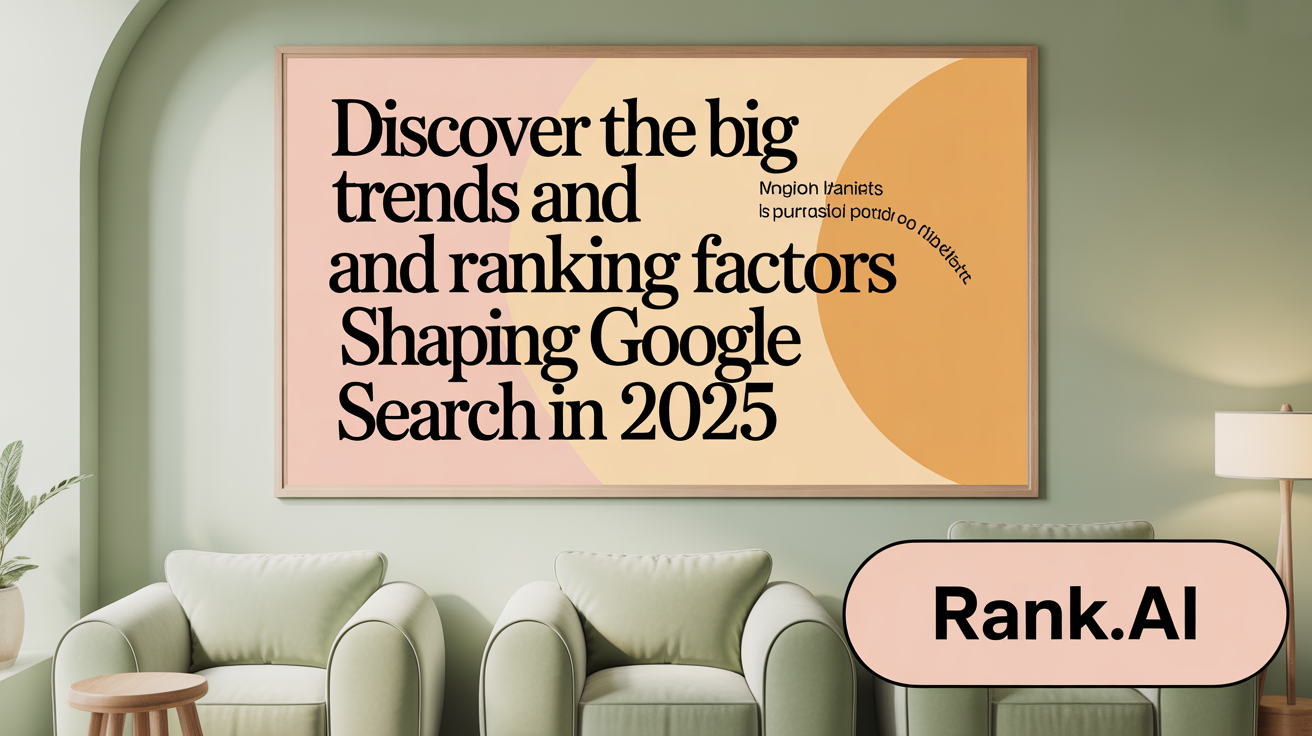
What are the predicted trends and ranking factors for Google's search algorithm in 2025?
In 2025, Google's search ecosystem continues to evolve with a focus on providing users with relevant, trustworthy, and high-quality content. Central to these changes is the prioritization of E-E-A-T—Experience, Expertise, Authority, and Trustworthiness—because Google aims to deliver results from credible sources, especially for sensitive topics in YMYL sectors like health and finance.
User experience remains at the forefront. Core Web Vitals—Metrics such as Largest Contentful Paint (LCP), First Input Delay (FID), and Cumulative Layout Shift (CLS)—are crucial signals. Websites that load quickly, are mobile-friendly, and offer stable visual content tend to perform better in rankings.
Artificial intelligence introduces new depths of understanding into search processes. Systems like BERT, MUM, and RankBrain are increasingly adept at grasping complex queries, enabling Google to serve highly relevant content through featured snippets and direct answers. AI-driven search features, such as AI Overviews and 'AI Mode,' make it imperative for content creators to optimize for structured data and concise, authoritative information.
As zero-click searches—search results that provide answers directly on the results page—continue to grow, it becomes vital to optimize content for featured snippets. This includes clear formatting, answering questions succinctly, and using schema markup to help Google understand content structure.
Technical SEO factors—website mobile usability, fast loading speeds, secure connections, and clean site architecture—remain vital. Reputational signals like reviews, brand mentions, and social signals also influence trustworthiness and rankings.
To combat manipulative tactics and spam, Google invests in advanced detection algorithms that filter low-quality, AI-spun, or duplicate content. Content teams need to focus on originality and depth, fostering genuine authority in their niche.
Overall, the 2025 SEO landscape emphasizes creating human-centered, authoritative, and technically optimized content that aligns with evolving AI capabilities and search behaviors. Those who adapt to these trends—by focusing on user value, technical excellence, and reputation—offer the best chances to succeed.
The Integrated Role of Analytics Tools and Insights for SEO Advancement
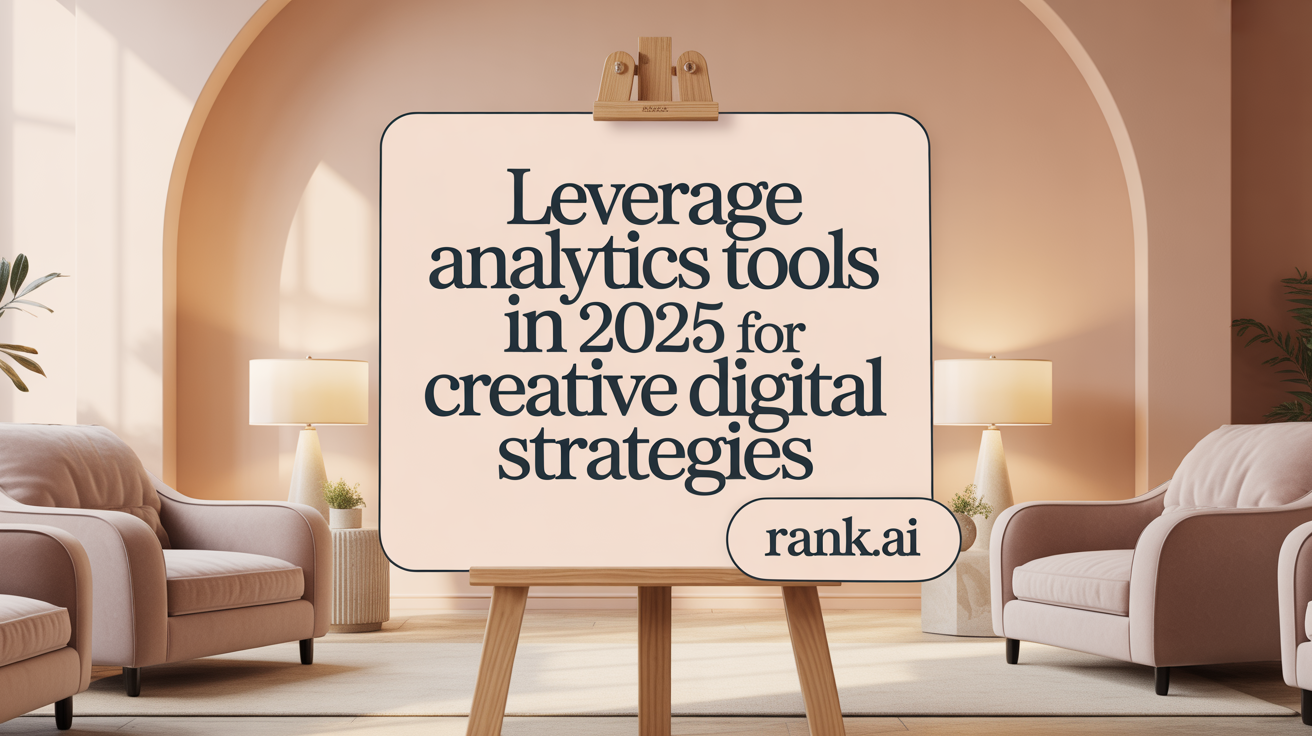
Launch of Search Console Insights
In June 2025, Google introduced Search Console Insights, a powerful tool combining performance metrics and top content analysis. This integrated dashboard provides website owners with valuable data on how their content performs, helping identify what attracts visitors and areas that need improvement.
Importance of continuous performance monitoring
Ongoing monitoring of search performance is vital in the evolving SEO landscape of 2025. Regularly examining metrics like traffic, bounce rates, and ranking fluctuations enables site owners to respond swiftly to algorithm updates and shifting user behaviors.
Leveraging insights for content and technical optimization
By analyzing data from tools like Search Console Insights, creators can refine their content relevance, enhance user experience, and align with Google’s focus on quality, expertise, and trustworthiness. Technical aspects such as page speed and mobile usability remain crucial, with insights guiding necessary adjustments.
Tracking AI-generated feature impact on traffic
With the rise of AI-driven features such as AI Overviews and AI Mode, understanding their influence on traffic is essential. Monitoring how these features affect click-through rates and website visibility helps tailor strategies to balance AI benefits with organic traffic goals.
Using data to guide recovery and strategy adjustments
Algorithm updates can cause significant volatility, and data-driven decisions are critical for recovery. Analyzing trends, identifying content gaps, and implementing targeted improvements based on insights ensure a resilient and effective SEO approach.
For those seeking to enhance their SEO game in 2025, integrating analytics tools like Search Console Insights into daily routines offers a clear pathway to adapt, optimize, and succeed in a competitive digital environment.
Embracing the Future of SEO with Google's 2025 Algorithm
Google’s 2025 algorithm updates and AI advancements underscore a definitive shift towards user-centric, high-quality, and authoritative content supported by robust technical SEO and innovative AI features. Success in this evolving search landscape requires embracing E-E-A-T principles, integrating AI strategically for content and user experience, and maintaining diligent performance monitoring. By staying informed and adaptable, SEO professionals and content creators can not only navigate but also capitalize on the opportunities presented by Google's ongoing commitment to delivering the most relevant and trustworthy search results.
References
- Google Core Updates in 2025 - BlueTone Media Blog
- What You Need to Know About Google's Algorithm Changes in 2025
- Google Algorithm Updates & Changes: A Complete History
- AI in Search: Going beyond information to intelligence - Google Blog
- In-Depth SEO Checklist For 2025: What Google Actually Wants!
- What Google's March 2025 Update Means for Small Biz
- Google's 2025 Algorithm Changes | BAER PM



